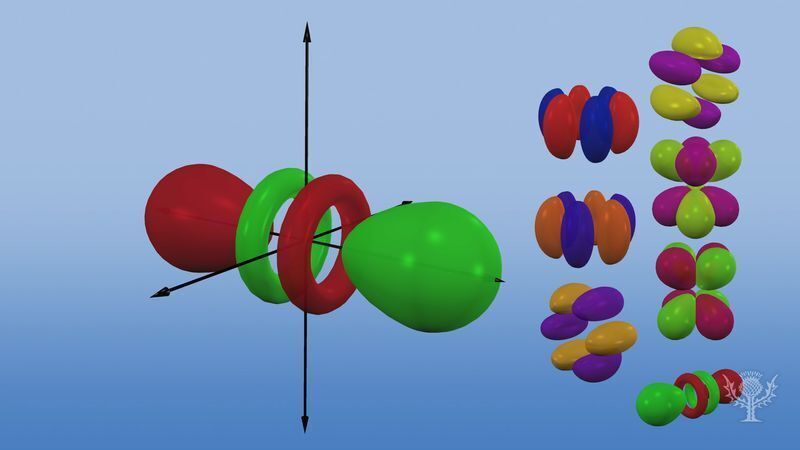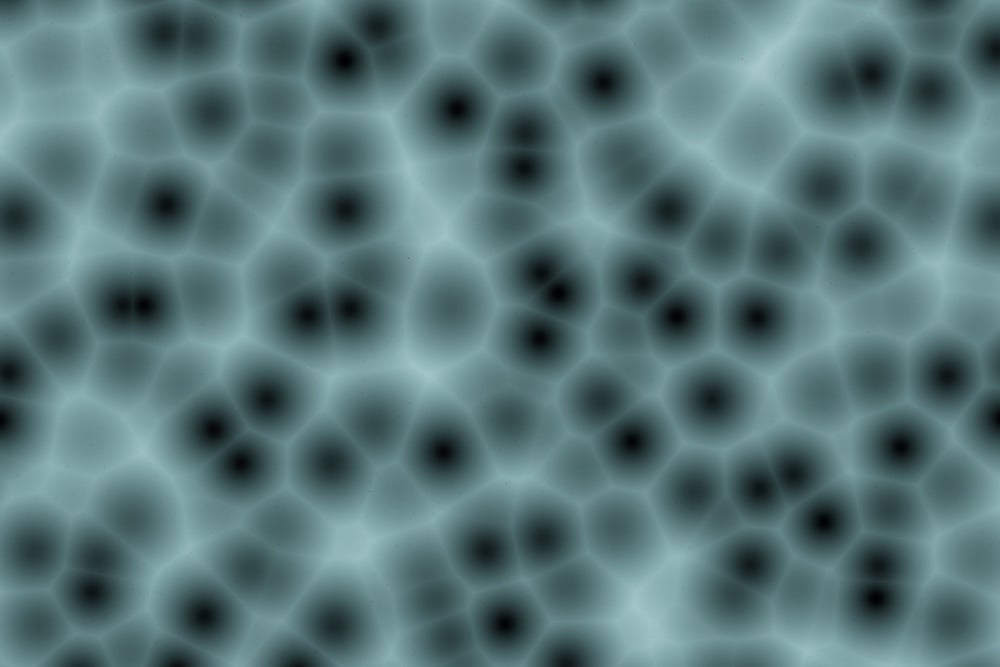Yes, because everybody knows the earth is in the sun’s p orbital

What if our solar system is just another balloon animal???
More believable than the meme.
Nono, these are d orbitals. Although p orbitals are equally silly.
I stand corrected. I should have checked; I mean, I’m not a quantum astrophysicist.
I just woke up and read that as “quantum aristocrat”.
Lol. For all I know I could be a quantum aristocrat, but whenever I open my bank account its wave function collapses to about $300
these are f orbitals, there is 5 of d orbitals
Just testing how deep Cunninghams law will go haha
that only works outside of dead internet
There was a guy on the net years ago who claimed that the entire universe is an electron on a plutonium atom. He made a religion out of it, wrote hymns to the atom (or, more precisely, changed the words of Christian hymns, clumsily fitting in references to plutonium atoms) and even legally changed his name to Archimedes Plutonium.
That sounds like something out of a fallout fanfiction
With a name like that I imagine his cause of death might be in the radioactive “bathtub” of a nuclear rod cooling pool
I always find it fascinating how specific those theories become. Want to believe that our universe is just some sort of quark in a bigger universe we can’t know anything about? Fine. Doesn’t make terribly much sense, but what does at that scale anyway? But then going on and being sure that that bigger thing must be Plutonium? Why? How?
Look, I’m not saying our universe exists as a node in an infinite fractal of repeating universes, but one of these is the largest structure we can see and another is the smallest:


Voroni pattern. It shows up in nature all the time.
That’s what the universes above and below us say too!
“Quod est superius est sicut quod inferius, et quod inferius est sicut quod est superius.”
“That which is above is like to that which is below, and that which is below is like to that which is above.”
First time I heard of this, super neat, thanks for sharing. Found a good article here:
God doesn’t play dice but he sure does repeat the same tune. I believe this same pattern is observable in our brains when neurons fire is it not?
There’s probably some math which explains the consistency of the pattern.
what’s the small one?
The little ‘3’ at the bottom right. That’s where the turtles live
I think the top is the small one because you zoom in really far on small things in rectangles. And the bottom is the universe because it’s a distorted view of a sphere, like our full view around us.
Atoms.
I’ve always liked this idea. Like, everything just repeats as infinitum whether you look smaller and smaller or bigger and bigger. The universe is just one of those fractal image kaleidoscopes.
I mean when I’m on Delta-8 that’s how I see the world, sometimes on shrooms too. Everything is just zooming out and zooming in, and it’s all just… the same thing, but not the same time… and all of it is turning to face God, but they only see the others turning to face God, infinitely everything looking for the source, but we can only see the other universes looking for God…
It’a… circular, I think it’s going somewhere but it doesn’t.
I’ve been into gut health lately and I was thinking what if we are the microorganisms inside a bigger beings gut? This planet is just one part of it and in order for the universe to have a healthy gut we would have to terra form the planets and make healthy worlds. (I don’t think we will actually do that. We are more likely to mine every other planet)
The universe’s gut now looks like the typical American diet gut with ultra processed foods and not enough fiber/fermented foods.
This planet is just one part of it and in order for the universe to have a healthy gut we would have to terra form the planets and make healthy worlds.
…
I want to question the assumption that an increase of Earth-like planets would be better than the current state of the universe.
The idea that the current state of the universe is unhealthy, and needs us to save it by increasing homogeneity by altering other planets to look more like ours…
I’m just gonna say it.
It’s eerily reminiscent of the colonizers’ mindset of “saving the world by making it more like us”
It comes from the assumption that others’ current state of being is inferior to ours, and need to be fixed, by us assimilating then into our, superior, state of being. It comes from an assumption that there exists inferior and superior states at all, and that superior states of being should be strived towards. Rather than assuming that diversity is better than homogeneity, and different states of being are neither inferior or superior, they simply are.
I question the idea that us changing the universe to resemble us, would be superior to the current state of the universe
I see your point. I would be guilty of that mindset that a planet full of life (not necessarily human life) is superior to a dead rock.
Or that the observable universe could be inside of a black hole. Don’t watch too many black hole videos before bed.
Planet 9 is not a primordial black hole and it can’t hurt you. 🙀
From my understanding of primordial black holes, if one were so close as to be in our solar system, it is very small.
Since it’s so small, it would have fizzled out through hawking radiation output a long time ago.
So yes, planet 9 is NOT a black hole that can hurt you.
Now, a pocket of warped spacetime that will one day spawn a Chaos Demon? Maybe.
It still fucks with me that we went from 9 planets to 8, pour one out for Pluto
Well at one time people “knew” that space was filled with Aether, and people knew that the universe was no more than 2 million years old.
But once you understand things more, some of the things you know turn out to be wrong.
In this case it’s more like “we called this thing a planet before we knew just how tiny it really is but it’s still cool so we now have categories for things just like it”
Which I think is neat.
You can be sad it’s not a planet, we can also be happy that it pulled one over on all of humanity for such a long time.
There are SO MANY Men In Black references in this thread and NOBODY is pointing them out and it is driving me CRAZY
That’s actually what I was going for but I didn’t want to use the “earth was flat” that K uses.
Ok thank you, that makes me feel a lot better to know that at least you intended the reference.
the only thing that changed is what we call it, pluto has existed since before humans and will continue to exist after humans most likely, and it does not give even the tiniest shit about what we call it.
“planet” is an arbitrary category that mostly just exists because we like to put things into categories, much like the concept of a continent.
It’s just really difficult to say that pluto is a planet if we want to have any sort of vague definition for what a planet is, because pluto is more similar to a ton of objects in the solar system than it is to the other bodies we very confidently refer to as planets.
If nothing else you have to also call ceres a planet if you include pluto, and how many people give a shit about ceres?
That’s messed up
I thought I heard once that our universe could be a holographic projection on a 2D plane surrounding around a black hole.
Don’t ask me for any details further than that, because I do not remember.
There was an episode of PBS Space Time on the holographic principle in general recently, and I believe they’ve also discussed the black hole thing as well.
Projected by what?
I don’t remember.
I mean, Schwarzschild radius shows that for a medium of constant density (and on a large scale, Universe is fairly uniform) there is an upper limit of a radius of a ball comprised of said medium above which it will form an event horizon.
Which means that an infinite universe of non-zero density is either a bloody paradox (spend a minute deciding where exactly event horizons should form and whether there will be gaps), or our understanding of gravity and spacetime breaks on ginormous scales just as it does on micro ones.
PS: I have seen no physicists talk about this, so there’s a good chance that there’s a simple resolution to the problem and I’m just stupid.
IIRC, isn’t it closer to a white hole, what with expansion? If you were far enough away, you cannot reach ‘there’ vs being guaranteed to reach ‘there’ like a black hole. Though really, it’s neither. Just curved spacetime.
The fact we think of white holes and black holes as separate entities just goes to show our great lack of understanding of spacetime.
My understanding is its similar in difference to a protostar and a nova
The galaxy is in Orion’s belt.
this is the ending to Men in Black (and then they did it again for the ending to Men in Black II because that film was creatively bankrupt).
“well brain, it seems you really need this sleep because that makes no sense whatsoever”
Considering how much shit orbits the sun that would be one wildly unstable atom
Nah. Sun just acts as the Queen Atom. Without it, you’d end up with a Helvetica Scenario. This is basic science.
everything written in a terrible font?
Oh. wrong Helvetica.
#commicsansforlife😁Please, jokes about this subject are very difficult for people affected by these situations. That is, it’s not the time to bring up comic sans, ok?
Me too
There are better manners to avoid the sleep

Now imagine if something… or someone… would poke our galaxy with an observation, and all the stars in the arms instantly collapsed into a single particle.
I had this thought as a kid. But I thought it was neat that we might be part of an atom of some larger molecule. Didn’t keep me awake. I had other trauma keeping me awake, like going to school.
Honestly the visual representation of the atom is just a simplified artist’s rendition. It’s more acceptable to treat the atom’s components as charge fields filled with very high energy contained by nuclear forces. That said, the planets with molten cores and the sun also have their own electromagnetic fields so maybe the concept isn’t so far off.
It would be fun to see the planets zipping around in random locations in their orbit. And if you kick one hard enough, it pops over to another orbit and emits a huge ass photon when it pops back.
This is something I find believable, and I wonder why it’s not commonly discussed more.
you have to fail intro to qm 101 and/or be stoned out of your mind to think this way
Or just reject planck length and all other dimensional limitations like it. Then you can have
turtlesuniverses all the way down.Planck length is not like universal pixels. It’s just where current models say there’s little reason to look at smaller things, since it’s kind of like worrying about which flecks of paint are coming off a car in a racing video game. It’s just … so irrelevant as to be ignorable.
It’s nigh impossible to have any energy that could interact with us or atoms on the Planck length scale that wouldn’t just collapse in to a black hole. It’s not so much any observation of real-world pixelation, and more that even to atoms, it’s very tiny.
Your comment about current models, known energy types, and universal pixels seems to ignore the post’s topic (which isn’t really about known models or energy types).
A better way to disregard the post would be to just point out that solar systems aren’t that big in terms of scales of the universe, and that there’s no indication of any charges, electrons, or valance layers about.
I’m not responding to the comic. I’m responding to you talking about the Planck length. I’m not disregarding the comic but making a tangential comment. Please try to keep up.
No.
Your loss! 🤷
planck length doesn’t come up even once, it all boils down to these things: 1. electron has momentum, and from that follows it has a wavelength, and at the same time 2. orbit is stable, which means that after every “rotation” electron has to end up with the same phase, which means there is only a finite number of solutions to time-independent schroedinger equation for (hydrogen) atom (don’t bother solving it on paper for anything with more than one electron) and these things are spherical harmonics
And why is that?
planetary orbits are not quantized, for starters. atomic orbitals are occupied by pairs (at most) of electrons, and this is because of qm spin exists which has no analogue in large scale. electrons aren’t spinning around on an orbit, they’re more of a smudged standing wave. it’s also a staple among vapid thonkers like mckenna
Here’s a few reasons this doesn’t work:
- Planets are different sizes, electrons are all identical
- 2 planets cannot occupy the same orbit, but (at least) two electrons with opposite spin can
- If you have a high speed planet entering the solar system, you can’t transfer some of its energy to another planet and have the rogue planet continue with less energy
- All orbital energies are possible, not so much for atoms
- Planetary orbits emit gravitational waves. If electrons produced the equivalent (bremstrahlung radiation) during “orbit”, they would collide with the nucleus hilariously fast. This isn’t a problem because electron orbitals don’t have a physical representation.
Thank
Can confirm the latter makes you consider this
Can confirm, this is ALL I see on certain substances
it’s not commonly discussed because it’s wrong
You just need to know what happens to the elements on the periodic table that have the highest atomic weights. Here’s the article for Lawrencium give that a quick read through and then try to figure out why the universe is almost certainly not a very large atom as we define it.
It is in the right groups. Sort of thing you can find talked about at flat earther meetings all over the globe, UFO enthusiasts if you can get a word in to ask and in Christian science journals.
because it only seems believable if you’re using an outdated and simplified model for atoms, and forget about the fact that atoms are also made up of protons/neutrons who are in turn made up of quarks, and the fact that there are a whole bunch of other fundamental particles that don’t give a toss about atoms.
If you look at the more accurate electron cloud model it stops making sense to compare it to a solar system.























